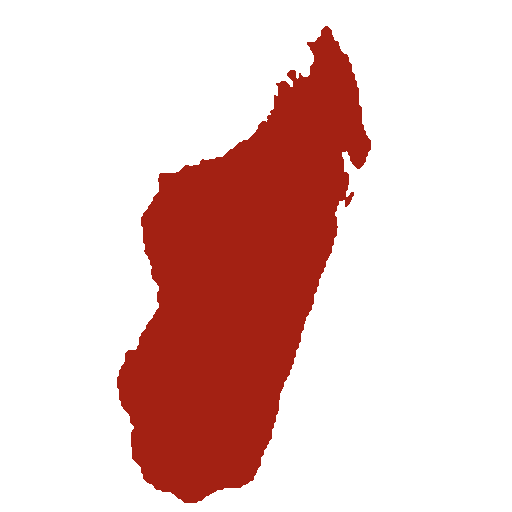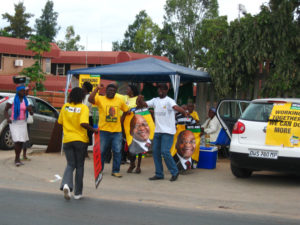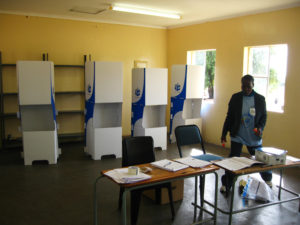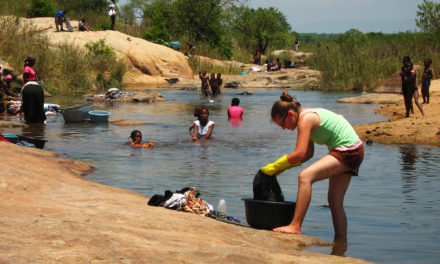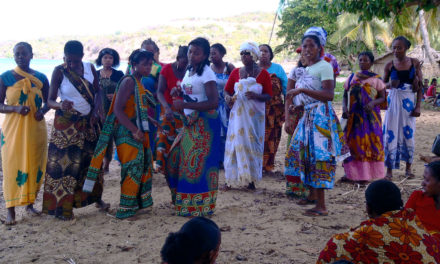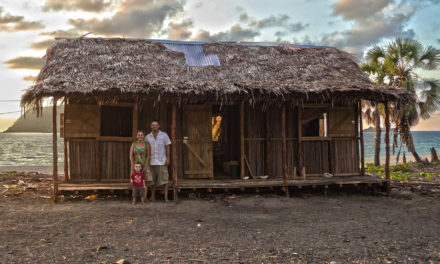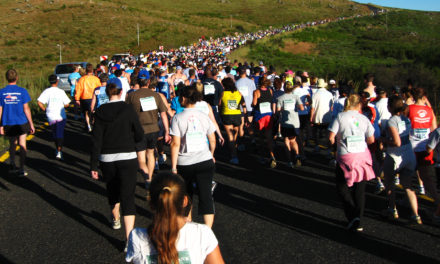Following South Africa’s fourth democratic elections, they have a new leader today: Jacob Zuma, the head of the African National Congress (ANC). It hasn’t really surprised anyone that he won and people have been predicting it for months, even with upheavals within the ANC and with the blemish of multiple criminal charges currently being pursued against Jacob Zuma. But, as everyone expected, he still won and his party just barely fell short of sweeping up two-thirds’ majority vote again. However, to an outsider like us Americans, a lot of the election and political system inSouth Africais significantly different.
To start with, people only have the option to vote for a party, not a person like we do in America. Individuals have no real say in who their party chooses as its leader. South Africa’s definitely more of a republic than a democracy. This is also why South Africa’s ruling party, the ANC, was able to “recall” the former President (i.e. force him into early resignation) and replace him with Motlanthe, who wasn’t the Vice President at the time, simply a high-ranking member within the ANC. The reason being, the people had voted for ANC in the national elections four years previous, so the ANC had the right to change the President any time they wanted.
So, when a South African votes on election day, as they did on Wednesday, they choose a party to represent them, not a person. South Africans make two votes: they have the option to choose one party to represent them in the national government, and one party for the provincial government (like our States). But they have no option to choose among candidates for those positions and they know that the current candidate for a particular party can be replaced at any time.
As far as democratic elections go, South Africa has an incredibly high percentage of eligible-voter turnout. This year they topped 80%, significantly more than the percentage of people who vote in the U.S. Part of the reason is that the majority of South African citizens are still very proud of their recently-won ability to vote. Until 1994, nearly 90% of South Africans weren’t allowed to vote in any elections because of restrictions placed on them by the Apartheid government.
Now, fifteen years later, the majority of South Africans are still very proud to “exercise their democratic right to vote”. The country as a whole appreciates this so much that schools are shut down and many businesses are closed, just to make sure people aren’t too pre-occupied to vote.
On top of that, many South Africans are willing to wait in lines for three or four hours or more, just to get their vote in. In the nearby town of Thulamahashe, the line was about one to two hours long on average, but in our village where voting was held at the schools, the line usually wasn’t more than fifteen or thirty minutes. Everywhere I went people were asking me if I was going to vote and when I told them I couldn’t, they tried to convince me to find a way to vote anyway
Overall, South Africa has more than twenty competing political parties, every one of them represented on the national ballot and more than half of them represented on the provincial ballot. Most parties are led by the majority population, black South Africans, and most of their platforms are about the same with minor variations, sometimes running along tribal lines. But they also have parties specifically representing South Africa’s significant Indian population, Muslims, mixed racial groups, and even parties that want a return to Apartheid-era ways (though of course they never gain much vote anymore).
So, leading up to the elections, campaigning was in full swing. ANC has ruled South African politics since 1994, but they always campaign hard anyway. Unfortunately this year, violent clashes between political parties arose again reminiscent of 1994, but it was mostly isolated to a province south of ours – Kwa-Zulu Natal. A few people were killed on both sides, but the incidents were supposedly not coordinated.
In our small village, there were weekly rallies for the ANC right in front of our house. They resembled parades that marched around the streets with people singing, dancing, and shouting slogans. Oftentimes the majority of the attendants were actually transported in from surrounding areas but it helped give ANC a show of strength. (That also happens to be one of their slogans: “Amandla!” – “Power/Strength!”) The rallies would last two to three hours and then disperse. During the week right before the elections they held several rallies and the night before they had a big tent meeting with someone preaching late into the night about the merits of the ANC.
Not all ANC campaigning was honest though: apparently many ANC representatives told lots of villagers who were receiving welfare grants that if they didn’t vote for the ANC they’d no longer receive their welfare grants. We also saw ANC party representatives taking the opportunity of the preaching pulpits at funerals to encourage everyone to vote for the ANC.
Also, South Africa’s biggest labor unions, including the Teachers’ Union, openly endorse the ANC. The South African Teachers’ Union (SADTU) publishes a frequent and free newspaper for educators and the most recent headliner was “Why You Should Vote for the ANC”. Even the comic inside wasn’t funny at all, but was just a story about people voting for the ANC.
There were a few posters for other political parties hanging around in the village, but none of them were well represented like the ANC. Most people say the main reason they all vote for ANC is that they’re committed to them as the “liberation party” that freed them from Apartheid. There is a lot of truth to that, but a few people are beginning to be disillusioned with the ANC’s past failed promises and I heard many people saying they weren’t sure if they’d still vote for them this year.
However, few of the people I spoke to said they were worried about the possibility of Jacob Zuma being found guilty of the multiple criminal charges against him. The idea of a South African President who’s also a criminal doesn’t seem to bother them. Maybe it’s just because the majority of the “liberation party’s” representatives in the past were at one point or another put in jail for defying Apartheid. Some, like Nelson Mandela, were in prison for decades before being released and resuming activity as politicians.
As I said, a person’s right and ability to vote is still held very dear in South Africa. For the two days preceding the official election day, “special votes” were taken. These were from old and disabled people and anyone who registered saying the long lines of the official election day were too difficult for them to bear. And for those unable to walk to the voting station, some of the election officials actually went to their individual houses to help them vote.
Voting stations were in school classrooms and public government buildings. On the official election day, people lined up from 6 am, even though the voting didn’t start until 7 am. The lines were actually the longest early in the morning and died down in the middle of the day, only to get much longer again close to the voting stations’ closing time at 9 pm. In some areas, voting lasted well beyond midnight just because the lines were too long to close at 9 pm.
Once inside the voting station, a person’s ID is first checked to verify their eligibility to vote. Then, a line is marked on their thumb with a permanent marker. That’s the primary method to keep one person from voting more than once. It also doubles as a replacement for the “I Voted!” stickers we have in America, as many people showed me their marked thumbs to display their pride in having voted that day.
After that, a person receives two stamped ballots and takes them over to a folded-cardboard voting booth. The ballots themselves had the names of each party, the name of the presidential candidate for that party, a picture of that party’s logo, and a photo of that party’s presidential candidate. All a voter had to do was mark an “X” in the box next to their choice.
Even still, “Party Agents” were available at every voting station to help make sure anyone with difficulties would make the right vote. The “Party Agents” actually were representatives of the different parties, and ANC had several representatives at each voting station. In smaller voting stations, like our village, multiple parties were represented by a single Party Agent. It’s pretty interesting to me as an American how a representative of a political party is allowed to help people (who maybe have vision problems) make the “right vote”. Finally, the voter places his/her ballot in a cardboard “ballot box”.
As for party representation that near the voting station (and within it), there apparently are certain rules surrounding it similar to the USA. The major difference of course is that party representatives are allowed within the voting station and are allowed to interact with voters while they’re voting. But, their purpose is supposed to be limited and outside the voting station campaigners are supposed to maintain a certain distance.
However, as I saw in Thulamahashe, most ANC supporters didn’t regard the rule too closely and instead there were ANC campaign posters and t-shirts and singing and dancing on their behalf surrounding the voting station. And nearly every taxi or pick-up truck that passed by the road was plastered with ANC posters, so I suppose there wasn’t much that could be done about that anyway.
Overall, the main difference I noticed about elections here in South Africa, other than just the small details concerning the methods, was the high level of pure excitement people had about voting. Sure, lots of people wanted to make sure everyone else was voting for the ANC, but there were even more people who just wanted to make sure everyone else was voting. The singing and the dancing weren’t just part of the campaigning, it was also people’s overflowing excitement about taking part in democracy. It makes me glad to have seen and experienced it.
It’s true that with Zuma as President of South Africa, things might not run as smoothly as they have in the past. And considering ANC’s high number of admittedly failed promises, that’s not saying a lot. Nonetheless, I think the average rural person here in South Africa is more concerned with the simple ability to vote than with the results of their voting. You may say it’s typical of many traditional Africans’ inability to look and plan ahead, but I’d venture to say it’s better than foresight preventing someone from action as often happens to us Westerners when considering politics. For now we can just hope and pray for further democratic reforms in South Africa so that South Africans’ love of democracy will be rewarded with good governance and development!
